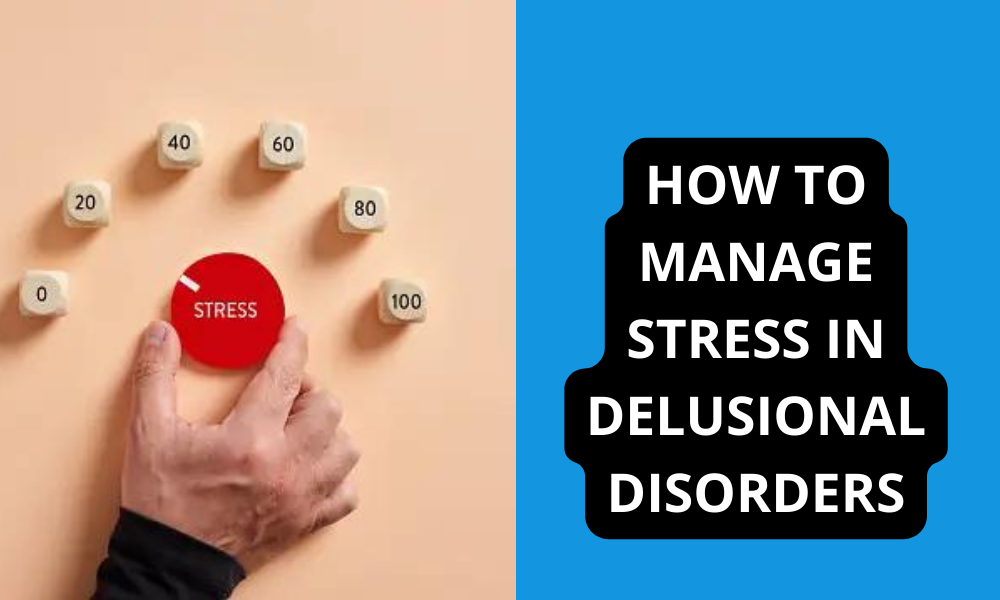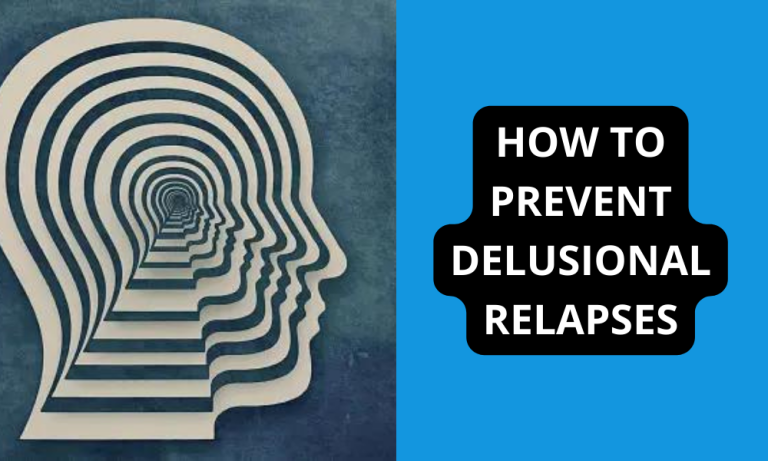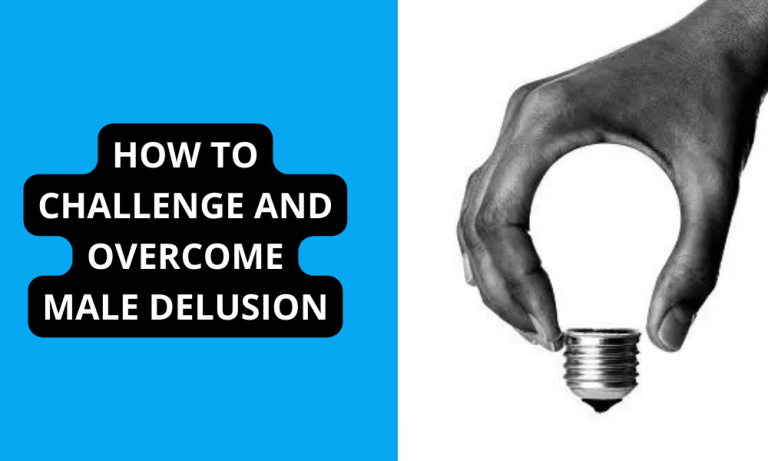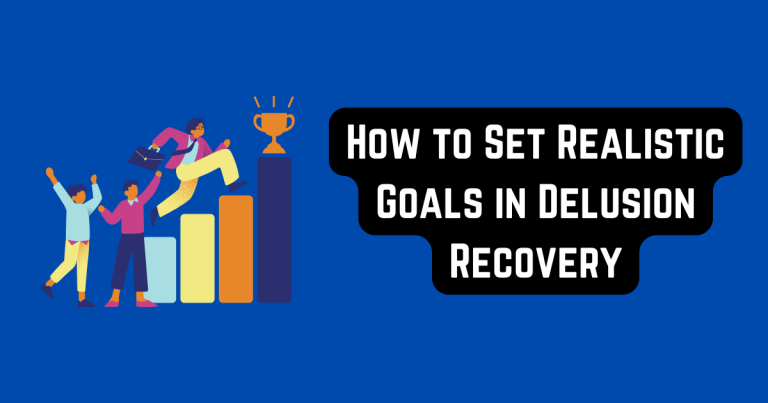How to Manage Stress in Delusional Disorders?

As someone who experiences delusional disorders, you likely understand how stressful delusional thoughts and behaviors can be. While delusional beliefs feel absolutely real to you at the moment, they are ideas that are falsely held despite proof or rational explanation. This can understandably cause a great deal of distress.
The good news is that there are ways for you to better manage stress associated with delusional disorders. By utilizing coping strategies and making lifestyle adjustments, you can gain a sense of control over your mental health and minimize triggers that exacerbate delusional thinking.
In this post, I will walk you through steps to reduce stress levels when living with delusional disorders. My goal is to help empower you to lead your most balanced life possible while also providing techniques grounded in scientific research. Let’s get started.
What Causes Stress with Delusional Disorders?
Before looking at solutions, it’s important to understand common triggers for stress and delusional thoughts. Some primary factors include:
Overthinking and Rumination – Dwelling excessively on delusional ideas, perceived threats, or past experiences can intensify distress.
Lack of Sleep – Poor sleep exacerbates paranoia, anxiety, and the inability to think clearly. It disrupts cognitive functions and regulation of emotions.
Social Isolation – Withdrawing from relationships and support systems eliminates coping outlets and validation, worsening distress and delusional thinking.
Substance Use – Alcohol and drugs like cannabis and stimulants are linked to increased delusional thoughts or psychosis for those vulnerable.
Life Stressors – Major changes, losses, or trauma can lower the threshold for stress and cause delusions to escalate.
The first step is gaining awareness of personal triggers so you can establish lifestyle modifications and coping plans accordingly.
Effective Stress Management Techniques
With awareness of causes, you’re empowered to implement strategies for reducing stress when living with delusional disorders. Here are some recommendations:
Improve Sleep Hygiene
Sticking to a consistent sleep-wake schedule, limiting screens before bed, and establishing a relaxing bedtime routine promotes better quality sleep. Aim for 7-9 hours per night.
Practice Progressive Muscle Relaxation
Taking time each day to tense and relax muscle groups systematically trains the body to unwind. This simple meditation technique counters stress.

Talk to Trusted Supporters
Reach out to family or a mental health professional for reality testing of delusional thoughts. Social support enhances resilience to stress.
Use Grounding Techniques
When distressed, engage the five senses by naming things you see, touch, hear, smell, and taste around you to shift focus from distressing internal experiences.
Limit Alcohol and Avoid Other Drugs
Substances disrupt neurobiology and worsen mental health issues. Commit to abstaining from all non-prescribed drugs, including cannabis and kratom.
Take Care of Physical Health
Regular exercise releases feel-good endorphins and provides an outlet for stress. Eat nutritious meals, stay hydrated, and keep general medical health in check too.
Managing triggers consistently through these behavioral adjustments is critical for sustainable stress control when living with delusional disorders. Addressing contributing lifestyle factors positively impacts mental wellness.
Additional Coping Strategies
Here are some supplemental techniques you may find helpful:
Track Delusional Thought Patterns
By journaling or using a mood tracking app daily, increased self-awareness supports catching distorted thinking earlier on before it intensifies anxiety.
Practice Cognitive Restructuring
When a delusional thought emerges, pause and consider alternative rational interpretations. Imagining calibrated responses trains the mind over time.
Use Relaxation Apps
Resources like Calm, Headspace and Insight Timer provide guided meditations targeting stress, worry, and uncertainty. Even 10 minutes a day lends mental clarity.
###Distract with Activities
Enjoying uplifting hobbies, connecting with others over shared interests, or creative pastimes redirect attention toward more positive experiences.
Challenge Unhelpful Rules
YouTube the “Rule Breaker” guided meditation video to retrain negative self-talk and spot unrealistically high standards that fuel distress over imagined failures.
Envision Success
End each day visualizing and giving thanks for positive experiences in vivid detail as homework for cultivating a resilient mindset.
With patience and diligence consistently implementing these methods, you steadily gain power over stress reactions and strengthen mental resilience against delusional thinking. Over time, it gets easier.
FAQs
Here are answers to some frequently asked questions:
How long until I see improvement?
Every individual responds differently, but aim for 2-4 weeks consistently using strategies. Notice any small wins and be kind with yourself in the process.
What if stressors are still present?
While stress cannot always be avoided entirely, you gain control over your reaction when properly caring for mental health needs. Continue practicing calming habits daily.
How do I motivate myself?
Having a support system, knowing setbacks happen, celebrating small victories, and focusing on your why for improved mental wellness maintain accountability. Your health is a priority worth persistent effort.
Conclusion
While delusional disorders introduce real psychological challenges and distress, effective stress management provides tools to exert more control over thoughts, emotions and wellbeing. Consistently using multiple coping strategies tailored to personal triggers leads to enhanced mental clarity over time.
Remember – setbacks may happen, but each day brings new opportunities to care for your holistic needs and apply what aids a resilient mindset. You’ve got this. Wishing you peace and continued progress on your mental wellness journey.






